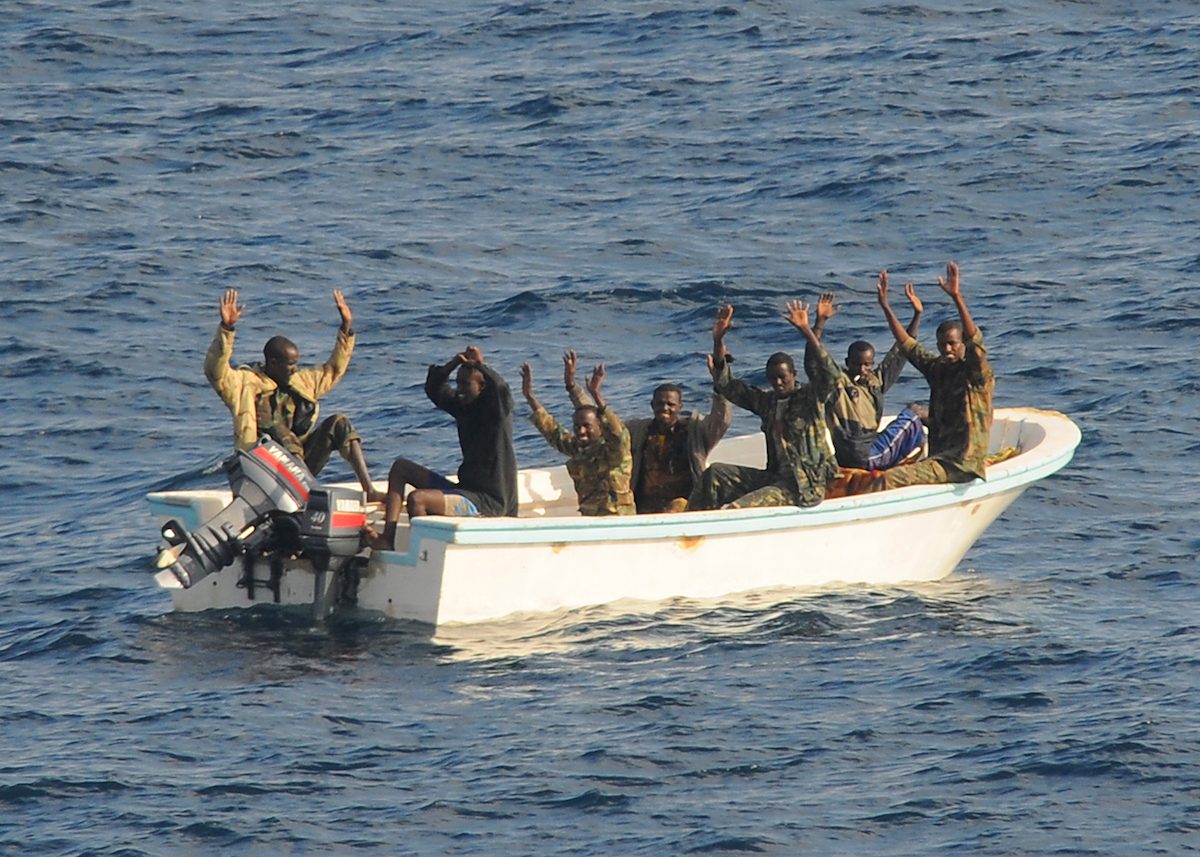Piracy Reporting Centre: Singapore Straits Emerge as Piracy Hotspot
Global piracy and armed robbery incidents against ships have risen sharply in the first quarter of 2025, with a notable 35% increase compared to the same period last year. The...

Two Somali pirates have been brought to justice in the United States for their roles in a harrowing 977-day hostage-taking of an American journalist.
In a landmark judgment, Somali nationals Abdi Yusef Hassan, 56, and Mohamed Tahlil Mohamed, 43, were each handed 30-year prison sentences for their involvement in the abduction and brutal captivity of American journalist Michael Scott Moore, the U.S. Justice Department announced Wednesday.
The two men, convicted in February 2023 by a New York jury, faced charges of hostage-taking, terrorism, and firearms offenses after a three-week trial that exposed chilling details of Moore’s 977-day ordeal.
Moore, a freelance journalist, traveled to Somalia in January 2012 to report on piracy and economic conditions. Shortly after arriving, he was ambushed near Galkayo by armed militants wielding assault rifles and rocket-propelled grenades. For nearly three years, he endured a harrowing captivity, shuttled between remote hideouts and pirate-held vessels, chained at night to prevent escape, and forced to plead for ransom in proof-of-life videos.
Initially held with Seychellois fishermen abducted off the Somali coast, Moore was later transferred to the hijacked F/V Naham III, joining 28 other captives from Vietnam, China, the Philippines, and Taiwan. He learned from crew members that the pirates had executed the ship’s captain and stored his body onboard. One incident saw Moore forced to witness the brutal beating of a fellow prisoner, a fisherman, as a warning of the violence his captors were capable of inflicting.
Moore was released in 2014 reportedly after a $2 million ransom was paid.
Hassan and Mohamed played critical roles in Moore’s prolonged captivity. Hassan, a naturalized U.S. citizen and influential figure in Galmudug province’s security forces, operated as the pirates’ leader, directing ransom negotiations and proof-of-life videos from his own home. Mohamed, a Somali army officer, leveraged his military training as head of security and weapons handler, ensuring Moore’s captivity was fortified with machine guns, grenade launchers, and armed guards at every turn.
The saga of Somali piracy reached its peak in 2011, with pirates launching 237 attacks and taking hundreds hostage, costing the global economy an estimated $7 billion. To avoid pirate-infested waters, shipping companies rerouted vessels and invested heavily in armed security, driving up costs across the industry.
Hassan and Mohamed will serve a supervised release following their sentences, though given the severity of their crimes, their long-term freedom remains limited. The FBI’s Boston and Minneapolis offices led the investigation, with contributions from the Department of State Diplomatic Security Service, U.S. Attorney’s Office for the Eastern District of New York, and Department of Justice’s National Security Division.

Sign up for gCaptain’s newsletter and never miss an update

Subscribe to gCaptain Daily and stay informed with the latest global maritime and offshore news


Stay informed with the latest maritime and offshore news, delivered daily straight to your inbox
Essential news coupled with the finest maritime content sourced from across the globe.
Sign Up